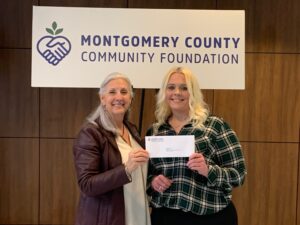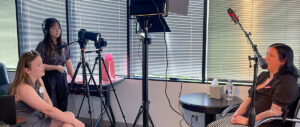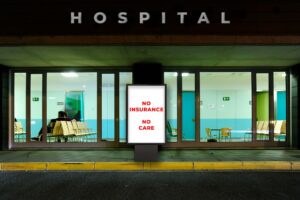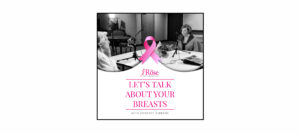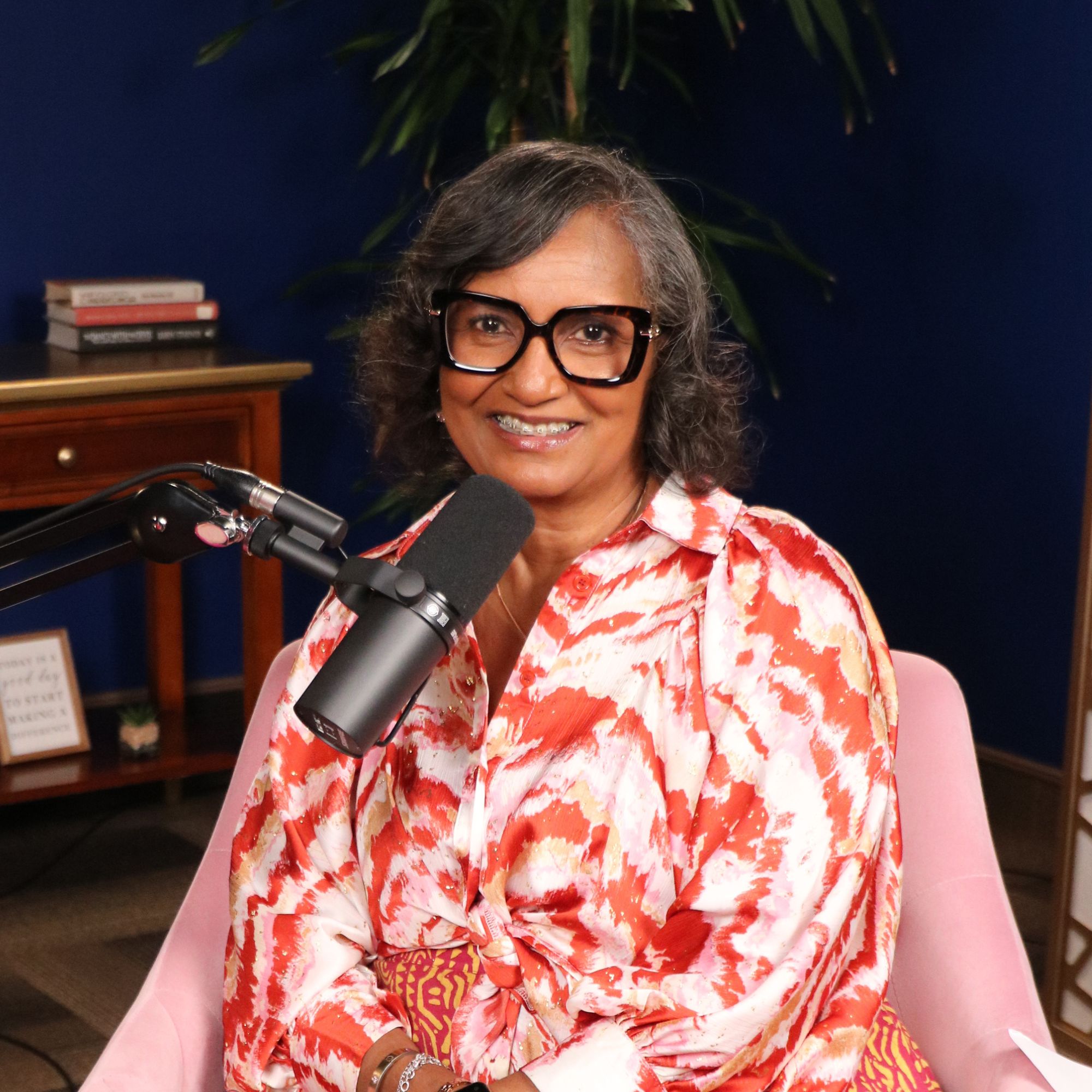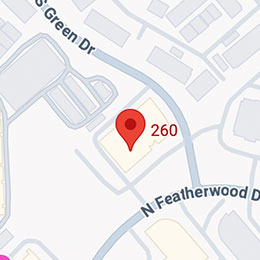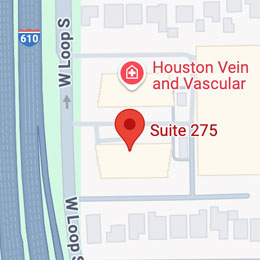Dorothy: [00:00:00] Dawn Elliott knows first hand the importance of early detection. At age 35, she was urged by her gynecologist to have a baseline mammogram, even though she didn’t have family history and she didn’t have any problems. It was a decision that saved her life. Dawn beat all the odds, but it wasn’t easy. She was a single working mother, and she knew she had to live. Since then, she has served on numerous cancer related boards, led recruitment in massive studies geared to eradicate breast cancer, and won some of the most prestigious awards in the cancer field. But perhaps her most rewarding position has been here at The Rose, where today she’s paying it forward by helping hundreds of other women access breast health care.
When you subscribe to our show, you help us grow. Someone you know may need to hear this story. So please share with your family and friends [00:01:00] and consider supporting our mission at therose.org.
Let’s Talk About Your Breast, a different kind of podcast presented to you by The Rose, the Breast Center of Excellence and a Texas treasurer. You’re going to hear frank discussions about tough topics, and you’re going to learn why knowing about your breast could save your life.
Dawn, thank you so much for being with us today. I know you and I have known each other for many, many years, and you’ve been a part of The Rose’s life in some way or another. So, I want you to go back to the time when you were diagnosed and tell us just a little bit about how you were diagnosed, how it was found, what happened during that time.
Dawn: Sure. So, I had an amazing gynecologist, Dr. James McBride, who is retired now. [00:02:00] He delivered three of my babies, my sons. And he, I guess from the age of 30, he would tell me every year that, um, now Dawn, when you turn 35, you’re going to have to have a baseline mammogram. And I thought, okay. What’s that about? You know, nobody in my family has had breast cancer and I’m young, but every year he would remind me when he got closer. So when I did turn 35 that November, I didn’t make my appointment. I waited until January. I don’t know why. I just didn’t go during my birthday month, which is November. So, When I went, I said, so he’s checking me doing, he was, he’s very, very thorough.
So he, I said, you know, Dr. McBride, I have this little lump under my arm pit. And so [00:03:00] he started, he, he felt it. And he said, um, well, I don’t know, you know, that let’s check this out. And it’s time for you to have your mammogram anyway. So this was at Women’s Hospital. And that was when they had the, they had a mobile.
Uh, they didn’t even have their breast area in the hospital, uh, yet. And so, so when the lady was, when the tech was doing the mammogram, I could, I could feel her. She was tense. And I said, something’s wrong. And I don’t know what it is. So then, so Dr. McBride called me back and he said, I need you to see a surgeon.
You know, this, it’s something suspicious. So he referred me to Dr. Tom at Methodist who also had privileges at Women’s. I think I had a biopsy first, and then they wanted to do the surgical [00:04:00] biopsy. After the surgical biopsy, he said, he told my family everything looked good. I was Okay. Three days later, but the path had to be sent out.
Three days later, I was at my mom’s and he called and said, it’s suspicious cancer. And I froze and the tears start rolling. And my mom says, what, what, what did they say? And I told her, and she just got quiet. And so, I just, I said, okay, what, what do I have to do? And so the recommendations were, um, surgery, uh, to remove the area that they saw that was abnormal and either to have a, a lumpectomy or a modified radical mastectomy.
So my thoughts were, I want to live. I have these three little [00:05:00] children and, um, I want to live. So if, uh, if a lumpectomy is not enough, I’m fine with having a mastectomy. And so that’s what I chose. And so when I went in for the proceed, the procedure, when I woke up, everybody was quiet in my room. So it was, My mom, my husband, I was married at the time.
And so I said, okay, it’s obvious that I had a modified radical mastectomy, but get me out of this little tiny room because I’m living. So I learned at that point that I had to show my family, teach them how to support me because they were all sad and I was happy because I was alive.
Dorothy: Interesting. Interesting. So, but, so you went on and had chemo and—
Dawn: [00:06:00] So, it was DCIS stage zero, so it was caught very early. Dr. McBride saved my life because he said at 35 you’re going to have a baseline mammogram.
Dorothy: And Dawn, this was 30 years ago.
Dawn: Yes.
Dorothy: And it’s so interesting because you reminded me that 30 years ago, we could start a woman at 35.
Dawn: Right.
Dorothy: For that baseline. And it was the recommendation. Now it’s not.
Dawn: Right.
Dorothy: Now it’s 40. We still do 35 year olds as baseline, but I’m just, I’m just really not stunned, but, but reminded that if we don’t keep pushing and have doctors that push for younger women to have that mammogram, we’re going to. We don’t lose too many of you.
Dawn: Right.
Dorothy: I mean, that’s just, yours was zero.
Dawn: Zero. And I, I advocate for that. I tell women, you can get a baseline at 35, you just have to ask.
Dorothy: Right.
Dawn: It’s not the [00:07:00] recommendation anymore, but I am so thankful that Dr. McBride was adamant about 35, you get your baseline.
Dorothy: And that’s just another one of those things that have changed that were not good for women. Did you ever have a reoccurrence? Anything else that happened?
Dawn: So I had, uh, when I got pregnant with my son, who’s 23 now, Marcus, um, I actually had, well, breast changes. And so. My breasts have always been cystic anyway. So, um, there was something that they saw in the mammogram during the time I was pregnant, and I needed a biopsy.
And I actually came here, and Dr. Melillo did my biopsy. And I remember, how tender she was with me and said, Dawn, [00:08:00] I, this is going to hurt. I really don’t want to hurt you, but it’s going to hurt. And, but she was, she was very tender and gentle and let me know that it was going to hurt. And, but it didn’t hurt as much because of the way, how comforting she was with me. So, but that was just, it was just cystic. I have busy breasts. A busy breast.
Dorothy: Well, and that happens, and especially if you’re pregnant, but it was good that you, you checked it out.
Dawn: Right.
Dorothy: Now, that got you started in the breast cancer community. You, but you’d always been involved in something medical.
Dawn: Well, when I was with, uh, when I was with, when I was pregnant with Marcus, I was actually already working at MD Anderson as the Community Outreach Coordinator for the STAR Study, which was the Breast Cancer Prevention Study. So I was already, I could have had it at MD Anderson, but I don’t [00:09:00] know why I didn’t. Maybe they were booked and I wanted to get it done right away and I came here. I don’t remember.
Dorothy: To this center?
Dawn: To this center.
Dorothy: Oh, how interesting. Yeah.
Dawn: Yeah. But it was negative. It was negative. And, yeah, I’ve been fine.
Dorothy: But you’ve been in this community work for Ever.
Dawn: Yes, because I got busy after I had, after I was diagnosed, I wanted to know about this disease. And I learned that it wasn’t one size fits all. Everybody’s story is different. Everybody’s treatment plan is different. I moved on from MD Anderson to the University of Chicago, where I worked in a breast oncology clinic and cancer genetics and familial cancers. And so I saw everything. I saw young women, all nationalities. [00:10:00] I saw the nations at that, at the University of Chicago. And it was very, because I was so vested in what I do and have the compassion for what I do and for others. I had my pager on all the time. I was one mile away from the hospital, so patients would call me and it was, it was, it was gratifying to work in a field where I knew I could give back and it was meaningful.
Dorothy: Oh yeah. So patients just called you?
Dawn: They called, they would page me and I would meet them at the hospital or if they were in the suburbs of Chicago and they need to be, needed to be transferred, if they were at another hospital and they needed to come back there because the records were there, I would help facilitate all of that. But I, I was hired to recruit patients into [00:11:00] clinical trials. So, yeah.
Dorothy: That’s a big stretch. I mean, it sounds like you were doing patient navigation.
Dawn: I was. When I was, when there was really not such a thing. But when I got there, Dr. Olapade told me, I’m not gonna tell you what to do, make this your own. So I was able to be creative and do the things that not just what my job description said, I was able to go beyond that. And I also told her, I said, you know, I really like helping the community and the underserved. Can we go to Cooke County? And she said, sure. She grabbed my hand and we took a taxi. We went to Cooke County and I went to Cooke County once a month.
Dorothy: Oh my goodness.
Dawn: Yeah.
Dorothy: That was a real area of need.
Dawn: Right.
Dorothy: Yes, yes.
Dawn: Right.
Dorothy: What brought you back to Houston?
Dawn: This is [00:12:00] interesting because I had friends at Anderson, Baylor. I was part of the Intercultural Cancer Council and Pam Jackson called me up one day and said, Hey Dawn, don’t you want to come back home?
And let me just say, and this is making me emotional. I found out last week that Pam Jackson passed away. And they’re having her funeral service on Saturday, but she was instrumental in getting me back.
Dorothy: She was a good, I mean.
Dawn: You remember Pam?
Dorothy: Yes, I remember Pam.
Dawn: Yes, she passed. She was, she was, uh, on a trip to Vegas to visit some relatives and got sick and passed away there.
Dorothy: You know, that’s, there’s so many ambassadors, so many pioneers in this field. You were a pioneer. I mean, 30 years ago, not many people knew anyone else [00:13:00] that had breast cancer.
Dawn: Right.
Dorothy: Think about it. Now, people, you can’t find anyone that doesn’t know someone that has breast cancer.
Dawn: Right.
Dorothy: So you, so you work, you came back, you worked there for a while.
Dawn: The intercultural cancer counselor at Baylor, and uh, yes, so I worked there for a while. Some funds, uh, kind of, uh, They went away. And, um, so then I ended up going to, uh, Texas Children’s, which was part of Baylor and did recruitment clinical trials for children, uh, children with, um, ITP and, um, sickle cell.
And then from there went to Methodist to the heart center, uh, working with cardiovascular surgeons and patients who had, uh, different heart issues [00:14:00] as well as, um, diabetes and, uh, high blood pressure, which can lead to heart disease. So, yeah, so, and, um, what’s interesting is when I was at Anderson and I was And I advocated, well, actually when I would educate patients, or, uh, I’m sorry, ladies, about breast cancer, I also talked about heart disease, because heart disease was the number one and so, uh, killer of women. So, um, It’s interesting that I, I went from cancer to heart and I learned about that too, so that was exciting because I got to work in the OR and see patients who were on dialysis who had fistulas and, um, grafts and yeah, it was interesting. I had one study where patients, um, who had high blood pressure had [00:15:00] a, um, a device in their heart like a, I’m sorry, in their chest like a pacemaker. And, uh, it helped to regulate their blood pressure. So there was some really exciting studies that—
Dorothy: Right. And clinical trials are so important.
Dawn: Right.
Dorothy: Because we, we can’t get anything through until it’s had that clinical trial.
Dawn: Right.
Dorothy: And enough information.
Dawn: Right.
Dorothy: Proof of, of what it can do.
Dawn: Yeah, and what most people don’t know is just the over the counter medicines that we take now, Motrin, Tylenol, things like that, those were all in clinical trials.
Dorothy: Oh, absolutely.
Dawn: Yeah.
Dorothy: Even our allergy pills.
Dawn: Right.
Dorothy: Remember when it used to be prescription only?
Dawn: Yes. Right.
Dorothy: And now they are— oh, so, so many changes over these 30 something years.
Dawn: Right.
Dorothy: What brought you to The Rose?
Dawn: What brought me to The Rose? Well, uh, so some funds had dried up at Methodist. Uh, I was working with [00:16:00] an endocrinologist and she had the studies that brought in a lot of money. And so when she left, then my position left. So, because it’s soft money. So, I started applying, and I saw a position at The Rose, and so I applied for the position. I got a call from Jessica Duckworth, and she said, I think what she said was, We want to see you for, for something else, you know. And so, She said that there were several positions that I don’t know may not have been posted or may have, but I didn’t apply for them.
And so I came and I interviewed. I saw you that day and uh, you welcomed me. And then I got a call that I was hired. And so that was in the mobile department. So I started out in the mobile department and then transitioned over to Physician Liaison.
Dorothy: What does a Physician [00:17:00] Liaison do?
Dawn: What do, what do I do? Well, I call on providers who, uh, send patients to us, um, currently, and I find other, uh, uh, providers who, who could send their patients to us. So I, um, I maintain those, uh, existing providers and I look for new ones and I like to do big things.
Dorothy: Well, and you know, referring physicians are so important to The Rose. I mean, people don’t know about us unless that physician or another woman says, have you thought about going to The Rose?
Dawn: Right.
Dorothy: A lot of physicians will send their patients to us, especially if they’re uninsured.
Dawn: Right.
Dorothy: And they forget that we take insured too. But the other thing that we hear most often is the first mammogram. I don’t know if you’ve heard this, but I have had many doctors say, I always want [00:18:00] my young women to go to you for that first mammogram because The Rose is less scary. I mean, they describe it that way, or they say, you’re just a little more gentle.
Dawn: Mm hmm.
Dorothy: I think that’s a good thing, because we know young women will not come in unless something’s going on, or like you had a doctor who really encouraged you.
Dawn: Right, right.
Dorothy: So important.
Dawn: Yes, it is, it is.
Dorothy: Do you ever talk about your breasts? Your diagnosis when you’re doing this?
Dawn: Of course I do. They know I’m a survivor and I’ve got this one client that goes, Oh, where’s your pink today? So I have to make sure that on the day that I’m in that territory, I have pink. And so I remember one day, maybe I didn’t have it on, but I said, okay, well, I’ve got a pink dress here, but I don’t have it on today. But I try to, I try to do that for them because it makes them [00:19:00] happy. And I get a lot of joy with seeing them because, they, when I walk in and they’re smiling, that everything’s good.
Dorothy: Oh yeah.
Dawn: Yeah.
Dorothy: And you, you also serve as a, someone who helps us to know what the doctor’s offices need. And what they expect. And if what we’re offering isn’t working for them, you know, like the referral pads.
Dawn: Right.
Dorothy: How many times have we changed those just because of the information you found from a doctor’s office who said, I need to be able to do so and so.
Dawn: Right.
Dorothy: Yeah, so the liaisons are a great communication line between.
Dawn: Right, because then I get to learn things because I am in the community about things that We may not know about and I’m able to bring those things that I hear from them to us. So, so yes, I love it.
Dorothy: It’s a very needed, [00:20:00] very needed, uh, department service. We never had that. It was something that we kind of created. And it was because doctors are busy.
Dawn: They are.
Dorothy: You know, you don’t make appointments to go see them just to talk business.
Dawn: Right.
Dorothy: Or to talk about what services we have. But when they get used to someone coming in, Checking what else do we need to do? It can make a difference.
Dawn: Right. It does make a difference.
Dorothy: Good. I’m glad to hear that.
Dawn: It does make a difference. It does. It does. Yeah, absolutely.
Dorothy: And then you, you kind of monitor. And you help us to know when a doctor retires, which that’s never really announced, all of a sudden you just have patients that say, I don’t have a doctor.
Dawn: Right. And, and also this time of year, the providers are usually trying to get all of their patients in before the end of the year because they’ve got to meet their requirements. [00:21:00] And then I see at the beginning of the year, a lot of times there’s a lot of movement. Providers start moving around to other, other, uh, sites or, you know.
Dorothy: Healthcare facilities.
Dawn: Healthcare, yeah. Sometimes.
Dorothy: Moving office, yeah.
Dawn: Sometimes they go out of private practice into, you know, a hospitalist or something like that, or, yeah, like you said.
Dorothy: I want you to talk just a little bit about the importance of an employer’s support. When someone, when you have a young mother, Because I never understood that until I heard that story.
Dawn: About me? Yes. So, uh, when I came here, my son was in elementary school. And I recall he had some, it’s a state test that he, that they have. And he, I took a lot of special time for him that particular morning [00:22:00] to make sure he had breakfast. I prayed with him, made sure he wasn’t anxious and he, he was feeling calm so that he could take this test.
And so, I took my time with that, and so I was a little late coming into here. And when I got here, some of the ladies said, Well, Miss Dorothy is looking for you. And I said, Okay. And I called you. And I apologize for being late and I told you why and you said, well, that’s great. You were able to do that for your child.
It meant a lot to me as a single mom to be able to take care of my child and then come here and do my job. And at that particular time you were writing an article and you said you wanted my permission to say what year or something she said because they’re gonna know how old you are and I said [00:23:00] I don’t care about that. I’m alive. That’s what’s important to me. I don’t ever mind saying my age. As a matter of fact, on Monday, I turned 66.
Dorothy: Wow. Wow. Happy early birthday.
Dawn: Thank you.
Dorothy: Oh, that is so neat.
Dawn: Thank you.
Dorothy: And that means So many years that you are cancer free, and you have survived and contributed so much to the community. Because one doctor said, you must have your mammogram.
Dawn: This child is 23 years old now. Um, I could not have raised him the way that I did without the help of The Rose. He’s in college studying to be an architect. Sure. Architect. And I’m very, very, very grateful. I also want to say that this child was my, [00:24:00] is my post breast cancer baby, and I had no complications. I was able to even nurse him with my one breast, and it was very, very fulfilling for me to be able to do that. I remember my mom, she, she, It was hard for her to see. I said, Mom, I’m able to give him part of me, my body. But she just, I don’t know, maybe it was just for her.
Dorothy: You’re her daughter. Yeah.
Dawn: Yeah. And she’s no longer with us. She actually passed away when my son was four months old. So he never got to know her.
Dorothy: Oh, what a shame. All right, Dawn, what do you want young women to know? What do you want [00:25:00] any woman to know?
Dawn: I want women to know that breast cancer, um, when I heard it, even though they said DCIS, I didn’t know what all that meant, but when I heard the word cancer, I thought I was going to die. But, um, however, because of my faith and my tenacity, my inner strength, I was not going to let that happen for me.
And I have always, I would say, keep joy in your heart. Because the thing that I’ve learned about any kind of disease is you’ve got to keep your body clear. Your heart open. Your things that don’t matter, keep that outside. [00:26:00] Toxicity, get it, get it away from you. Get away from it and get it outside of you. I find, you know, I can talk a lot because I’m trying to get things outside of me.
I feel that when things are suppressed inside your body, you that could cause an illness. So, I daily try and keep things outside of me. If I’m upset about something, I talk about it. I don’t let it fester. And that keeps me sane. And it keeps me smiling. And it keeps me with joy and hope and being fulfilled.
Dorothy: Great, great advice. Keep that joy one way or another. Sometimes the only way we can keep it is by getting rid of the stuff that isn’t joyous to us.
Dawn: Right, right.
Dorothy: Yes, doesn’t mean, [00:27:00] that was great Dawn. Thank you again so much for being with us. Thank you for all the work you do for The Rose and all the ways that you make sure that women have their mammograms. Really appreciate you.
Dawn: Thank you, Dorothy. I appreciate you.
Post-Credits: Thank you for joining us today on Let’s Talk About Your Breasts. This podcast is produced by Speke Podcasting and brought to you by The Rose. Visit therose.org to learn more about our organization, subscribe to our podcast, share episodes with friends, and join the conversation on social media using #LetsTalkAboutYourBreasts. We welcome your feedback and suggestions. Consider supporting The Rose. Your gift can make the difference to a person in need. And remember, self care is not selfish. It’s essential.

